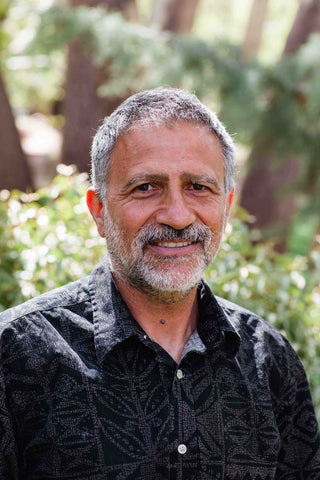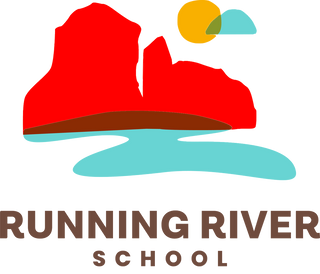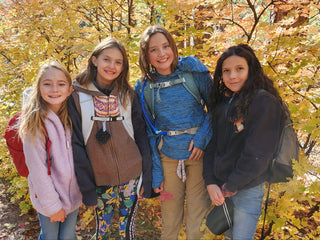Curriculum Overview
- Theme: Early Europe
- Percentages, business math (interest and discounts), statistics, geometry, Math Skills class twice per week
- Grammar and composition, letter writing (business and personal), drama, English Skills class twice per week
- Geology and physics, with lessons in acoustics, optics, heat, and magnetism
- History geography of Rome; Europe in the Middle Ages; North and South American geography
- Spanish
- Painting/drawing
- Physical Education/Movement/Games
- Violin (as available)
- Class Play
Life Skills
- Assume responsibility for self and work
- Maintain an organized assignment planner and complete homework assignments in timely fashion
- Work independently and quietly with focus on a task for up to 45 minutes
- Work collaboratively and do fair share of the task
- Work independently and collaboratively with minimum adult intervention
- Work neatly with desire to do best work
- Respect teachers, classmates, property, and materials
- Keep personal and school belongings well organized
- Have appropriate materials needed for class
- Be prepared and ready for class on time
- Maintain a positive attitude
- Work constructively with feedback from teachers and classmates
- Support classmates and the group
- Practice social inclusion and be included in social activities
- Use group process and discussion to work through social issues and class projects
- Participate in class discussion
- Participate in choral recitation and singing
Detailed Curriculum
Teaching changes significantly in the sixth grade to address new conceptual capacities that are awakening in the children as they approach adolescence. The curriculum, as well as the needs of individual students, becomes increasingly complex through the next few years.
The newly and often chaotically emerging individuality of the pre-adolescent yearns to find a place within the world that is unique and recognized and respected by others. The sixth grade is a firm, intentional step into the outer world. It is an arrival upon the earth. Changes in the physical body as the children approach age 12 become noticeable. There is an increased awareness of gravity and weight; hormones begin to affect the feeling and emotional life as well as physical maturity; and differences between male and female development become a source of interest. The themes explored over the course of this school year are chosen expressly to assist both the inner and outer questing of these young people.
The more traditional sciences enter into the child's experience as they begin to study physics. Parents are able to observe the true beauty of the 'phenomenological' approach of Waldorf Sciences as their children are taught to observe phenomenon through the scientific method, while also viewing everything in the world (and beyond) as an open 'living concept' full of evolving possibilities.
Language Arts
- Composition
- Reading
- Spelling
- Grammar
- Poetry
- Speech
- Drama
Mathematics
- Ratio
- Proportion
- Profit/Loss- Discount- Interest
- Percentages
- Graphs
- Estimation
- Geometry
Science
- Geology and Mineralogy
- Astronomy
- Physics: heat, light, acoustics, magnetism, static electricity.
Social Studies
- Ancient Rome: monarchy, republic, empire and fall
- Founding of Christianity and Islam
- The Crusades
- Medieval life in Europe
- South American or European geography
World Language
- Spanish
Fine Art
- Watercolor Painting
- Form and Freehand Drawing
- Modeling
- Pastels
- Perspective Drawing
- Class Play
Music
- Recorder
- Singing in parts and in rounds
- Violin (as available)
- Reading Music
- Choir
Physical Education
- Movement
- Team Games
- Cooperative Games
- Hiking
- Nature-Based Field Trips
- 'Rites of Passage' Outdoor Activities
Medieval Games
While studying the medieval games our sixth graders train in medieval skills such as castle-wall climbing, stilt walking and archery. At the end of the year they gather with children from other Arizona Waldorf schools at the Desert Marigold campus in Phoenix for a three-day hands-on Medieval History festival/lesson. The excerpt below from Desert Marigold gives an image of the spirit of this event:
"During this event the off-site camp is transformed back into that era with a beautiful display of pageantry. The Medieval Games are a tradition which offers each student the opportunity to practice the seven virtues in his/her own life, build relationships and trust with other squires, develop new physical skills and shine during the two days of challenges. At the Knighting Ceremony the students reflect upon what he/she has experienced, and is recognized at the Closing Ceremony for his/her virtuous acts.
The Medieval Games are celebrated in many Waldorf schools around the world. The pedagogical reasons for The Grade Six Medieval Games undergird the whole event and the preparation toward it. One reason is to provide the beginnings of the child starting to look at himself in a new way, especially in relation to virtue and one’s control over one’s own inner human development. Another is to offer students from a small school the opportunity to connect with other students who are pursuing physical, academic, and moral excellence in a similar way. A third is to step away from our egalitarian social stream into a more ancient hierarchical (and yet still trustworthy) way of being so that each student can see a strong-and-upright leadership model to internalize. This model is very different from the other heroes/leaders our society offers. And there are many other reasons…including that an education can often be enormously fun!"

Sixth Grade Teacher
Dan Perry
Mr. Dan brings over 20 years teaching experience, mostly in Waldorf education, but also in special education. He loves to inspire his students through his skills as a musican and vocalist, teach them true inner indepedence, a love for all cultures, and promote a sense of peace for humankind. Mr. Dan is also the faculty board representative.

